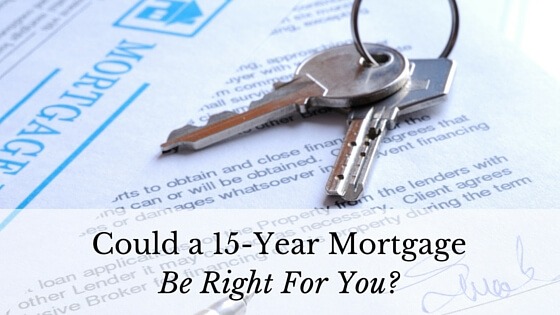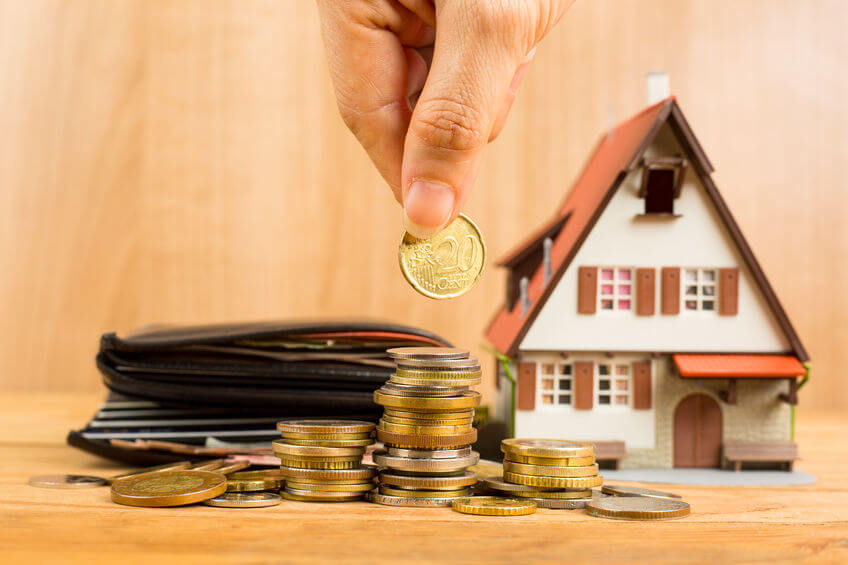Why is the 30-year mortgage so appealing to millions of Americans? While three decades is a considerable amount of time to carry a loan, most people are swayed by the fact this type of mortgage also means lower payments, and the ability to afford a more expensive home.
But have you ever considered the true repercussions of a 30-year mortgage versus a 15-year? While the monthly payments may be higher with the latter, the savings you’ll reap in the end may be worth the extra cost.
Following are some reasons why you should consider taking a second look at the 15-year mortgage option next time you go through the home-buying process:
- Build up quicker equity
Think about it: if you purchase a home that’s within your budget and finance it with a 15-year mortgage, you’ll speed up your principal repayment, and in turn build up equity in a much swifter fashion than if you had gone the 30-year route. In fact, after just a few years, you could be in a position to sell that initial home in order to put a down payment on a home in which you could see yourself more long-term. On the flip side, when you enter into the latter longer loan, the majority of your monthly payments will go directly to interest fees for the first few years rather than the principal balance.
The numbers speak for themselves. Check it out: at the current mortgage rates, just 30% of your first payment on a 30-year loan is applied toward the principal, with the other 70% going toward interest. However, 62% of your first payment on a 15-year loan is principal repayment. And the difference gets even greater as time goes on.
- Lower interest rate
Want to get the best possible interest rate on your loan? That’s one more reason to consider the 15-year mortgage. Here’s the proof: the current national average rate for a 15-year mortgage is 3.23%, which is significantly below the 3.98% in place for a 30-year loan.
Example: Let’s say you’re in the market for your first home, and you decide on a house that costs $150,000. With a 20% down payment, this means you’ll need to obtain a mortgage for $120,000.
A standard 30-year mortgage would result in a $573.59 monthly payment for principal and interest, and over the life of the loan, you’ll end up paying $206,492 – $86,492 in interest. On the other hand, while a 15-year mortgage would result in a higher $842.62 payment, your total interest cost would plunge to just $31,671.
In other words, while your monthly payment would be 47% higher, you’ll pay off your house twice as fast and pay 63% less interest.
- Less Interest
An added bonus to the lower interest rate you’ll pay on a 15-year mortgage is the fact you’ll also pay significantly less over time than you would on a 30-year mortgage. Based on today’s interest rates, here’s the difference it would make on a $200,000 loan: (graphic)
So what are the downsides to a 15-year mortgage?
There are two sides to every equation, and while the 15-year mortgage can be a very positive thing for a lot of people, it may also not be the right decision for some.
I’ve already stated how your monthly payments on a 15-year mortgage will be more expensive, but just how much more will it cost? Well, if you buy a home and obtain a $200,000 mortgage, you can expect to pay about $450 more per month on a 15-year mortgage than a 30-year, according to a recent financial analysis. Ultimately, you need to decide whether this type of payment fits into your budget. It’s important to look before you leap into something you can’t really afford.
One other thing to consider with a 15-year mortgage is the fact you may not be able to afford a house up to the same standards as would be possible under a 30-year mortgage.
Using the standard rule that your mortgage payment shouldn’t be more than 28% of your total income, a family with annual household income of $75,000 could get approved for a mortgage payment of $1,750 per month, as long as their other debts weren’t excessive. With a 30-year mortgage, this means that you could afford to buy a home worth approximately $341,000, assuming the national average cost of property taxes and insurance, and a 20% down payment. If you choose a 15-year mortgage, your affordability drops to $236,000. Consider your requirements and desires when it comes to a home purchase and evaluate whether or not a 15-year mortgage is affordable according your personal standards.
The bottom line: While restricting your home search to what you can afford within a 15-year mortgage may feel frustrating and limiting, remember it could just be a short-term solution in order to produce a positive, longer-term result.







